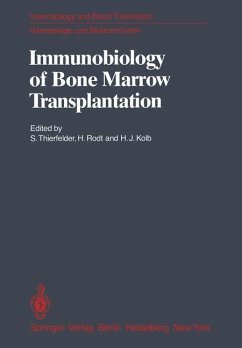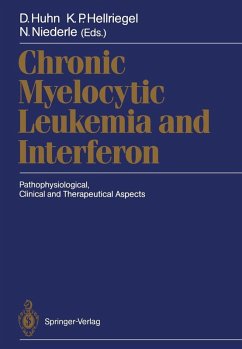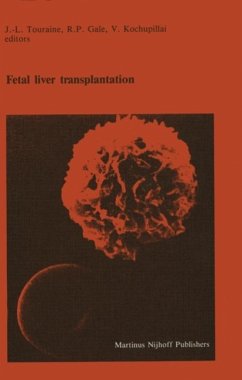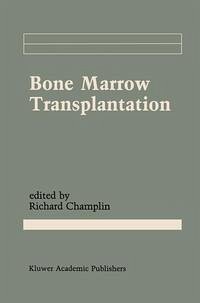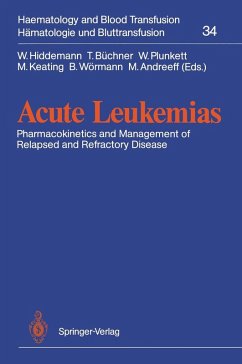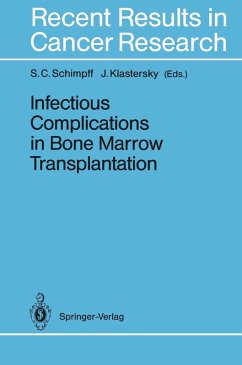
Aplastic Anemia and Other Bone Marrow Failure Syndromes (eBook, PDF)
Versandkostenfrei!
Sofort per Download lieferbar
72,95 €
inkl. MwSt.
Weitere Ausgaben:

PAYBACK Punkte
36 °P sammeln!
During the past decade, there have been numerous direct and indirect scientific contributions to both the etiology and therapy of aplastic anemia and related bone marrow failure syndromes. Clinical observations, such as autologous bone marrow recovery after conditioning with immunosup pressive agents for bone marrow transplantation; failure to achieve en graftment in some identical twins without prior immunosuppressive ther apy; and hematologic response to immunosuppressive agents, have led to the concept of immune-mediated etiology of acquired aplastic anemia. Such a concept was further stren...
During the past decade, there have been numerous direct and indirect scientific contributions to both the etiology and therapy of aplastic anemia and related bone marrow failure syndromes. Clinical observations, such as autologous bone marrow recovery after conditioning with immunosup pressive agents for bone marrow transplantation; failure to achieve en graftment in some identical twins without prior immunosuppressive ther apy; and hematologic response to immunosuppressive agents, have led to the concept of immune-mediated etiology of acquired aplastic anemia. Such a concept was further strengthened by laboratory findings, implicat ing the role of activated cytotoxic T lymphocytes and abnormal produc tion of inhibitory lymphokines. The immunologic mechanisms may also apply to the idiosyncratic bone marrow aplasias associated with drugs, toxic chemicals, and viruses. These agents may alter normal cellular recog nition sites by interacting with cellular components and result in loss of self tolerance. Immunologic mechanisms have long been advocated in many other organ failures, and the hemopoietic organ is no exception. It is of interest that parallel clinical and laboratory investigations in juvenile diabetes mellitus type I and in rodent models of this disease have yielded results compatible with the same pathogenic mechanisms. The infiltration of pancreatic islets by activated T lymphocytes, functional and morphological alterations of islet cells upon incubation with lymphokines such as gamma interferon and tumor necrosis factor, and clinical response to cyclosporine are a few examples.
Dieser Download kann aus rechtlichen Gründen nur mit Rechnungsadresse in A, B, BG, CY, CZ, D, DK, EW, E, FIN, F, GR, HR, H, IRL, I, LT, L, LR, M, NL, PL, P, R, S, SLO, SK ausgeliefert werden.



